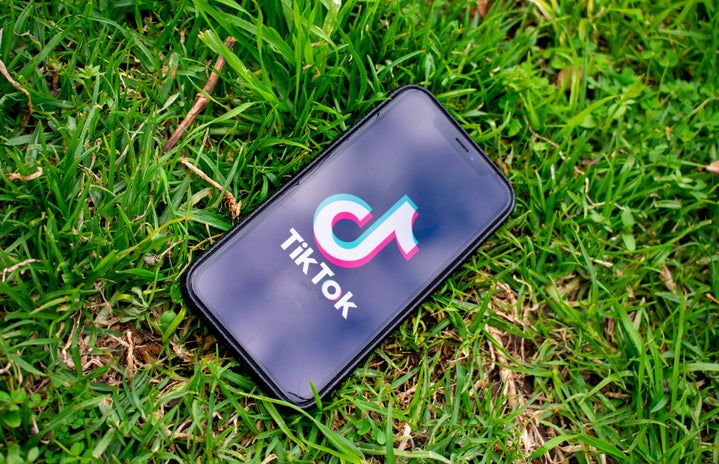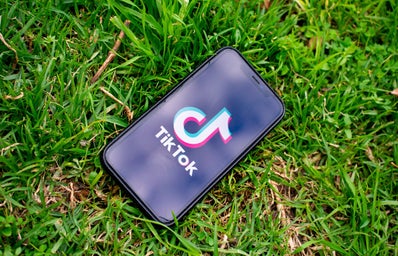As a collective society, I think we’ve come to accept the harmful effects that come from the addicting app, TikTok. While social media in general is a tricky subject to maneuver, TikTok would probably fall at the very top of the hierarchy. The grasp of the app has taken hold on almost every part of our lives, from beauty to celebrity gossip, business advice to college life; if you don’t have the app you’re being deprived of vital cultural knowledge. This may seem a bit over dramatic, but anyone that has tried to delete the app and exist without it understands what I mean.
At the forefront of this issue, TikTok is an incredibly addicting app. It’s so painfully easy to spend hours scrolling on your FYP. Before you know it you get one of those “check-in” videos, which is easy to skip and continue in your zombie-like state. As someone who’s been on and off the app for almost four years, I can acknowledge how difficult it is to get rid of it (and have it actually stay deleted). I’ve probably deleted and redownloaded the app at least four times in the past month. I first tried to get off the app when I realized how much my attention span had diminished. One of my favorite hobbies, reading, had become a more difficult task than it had ever been. Even getting through movies and TV show episodes seemed daunting. A new story being told every 15 seconds is an unnatural routine for the human brain, but when it’s being repeated over and over again, you grow to crave it.
Dr. Julie Albright, a sociologist, explains the similarities between the TikTok algorithm and a slot machine at a casino. As you scroll through your FYP, you will come across things you like and things you don’t, which encourages you to keep scrolling. “In psychological terms [it’s] called random reinforcement. It means sometimes you win, sometimes you lose. And that’s how these platforms are designed, they’re exactly like a slot machine. And, well, the one thing we know is slot machines are addictive.” It’s generally accepted that things like drugs, alcohol, and gambling are addicting. However the conversation around social media, particularly TikTok, isn’t one that happens, at least not in a productive way.
Stepping away from the app, or even deleting it, can be incredibly difficult. Many people have experienced deleting and redownloading it dozens of times. This isn’t just an issue of self-control however, social media uses science to purposefully addict you. As a person trying to limit their screen time and general doom scrolling, I have a few strategies I suggest.
- Just deleting the app(s) won’t be enough; plan activities you can do to take its place. For example, go to Barnes and Noble and get a few books you feel excited to read! Every time you feel the urge to scroll through your FYP, open up one of the books.
- Have people to hold you accountable. I have a few friends that have the same hopes of screen time limitation. It’s very helpful to have these few people to lean on and make sure I don’t break everytime I’m tempted.
- Notice when you spend the most time on your phone. For me, it’s right before I fall asleep, when I’m procrastinating homework, and on public transportation. When I’m able to pinpoint these situations, I can create solutions much easier. Put my phone across the room when I get into bed, put it in my desk drawer when I’m doing homework, and bring a book or journal when I take the train.
I hope these suggestions come in handy to anyone trying to spend less time on TikTok, and if you’ve already got your addiction under control I’m very jealous. Social media can be a wonderful tool to bring people together and connect us. However it can also be deeply damaging to many aspects of people’s lives, including mental health and attention span. It also seems to be an unavoidable aspect of everyone’s lives, so finding a way to balance your relationship with social media is critical.


